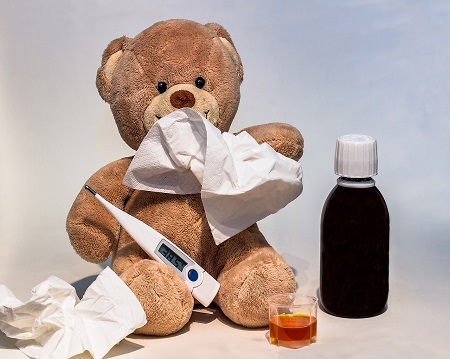Top 7 Products Every Parent Should Keep at Home
 Parenting often involves handling surprises. One day, it’s a scraped knee; the next, it’s a runny nose or a sudden allergy. That’s why keeping a few trusted items at home can save time, reduce stress, and help you take quick action when your child needs support.
Parenting often involves handling surprises. One day, it’s a scraped knee; the next, it’s a runny nose or a sudden allergy. That’s why keeping a few trusted items at home can save time, reduce stress, and help you take quick action when your child needs support.
Here are seven practical products every parent should have at home. Each one serves a clear purpose and can help manage common issues before they turn into bigger problems.
So, without any further ado, let’s get started!
1. Digital Thermometer
When your child feels warm or acts tired, the first thing you check is their temperature. A reliable digital thermometer gives fast and accurate readings. It helps you decide whether to wait and watch or call a doctor.
Look for one that provides results in under 10 seconds. Backlit screens are helpful for night checks. Flexible tips are more comfortable for kids, especially toddlers.
2. Allergy Medicine
Children can develop allergies to many things—dust, pollen, pet dander, or seasonal changes. These reactions often lead to sneezing, runny noses, watery eyes, or nasal congestion. Keeping allergy medicine for kids at home can help manage these symptoms before they affect your child’s mood or daily routine.
When choosing one, focus on options that are safe for your child’s age. Non-drowsy formulas are ideal for daytime use, especially during school or play. Also, pick something that’s easy to give, like chewable tablets or flavored liquids.
3. First Aid Kit
Scratches, cuts, and bumps happen often, especially when kids are active. A well-stocked first aid kit lets you handle these little emergencies without delay.
Your kit should include:
* Assorted bandages
* Antiseptic wipes
* Gauze pads and tape
* Tweezers
* Child-safe pain relief
* A small cold pack
Keep the kit in a labeled box in a place you can reach quickly. At the same time, make sure it’s out of reach of small children. Check the kit every few months and replace anything that’s been used or expired.
4. Fever or Pain Relief
Children can develop fevers for many reasons—teething, colds, or viral infections. Sometimes, they also experience body aches or sore throats. In those moments, having the right fever or pain relief medicine at home makes a big difference.
Keep a children’s version of acetaminophen or ibuprofen on hand. These help lower fever and ease pain. Make sure to choose the correct type based on your child’s age and weight. Always follow the dosing instructions on the label and use the provided measuring tool for accuracy.
Store the medicine safely, away from your child’s reach, and check the expiry date every few months. Quick access to proper relief can help your child rest better and recover faster, especially during unexpected nighttime illnesses.
5. Nasal Aspirator and Saline Drops
Colds can be tough on young kids. They often don’t know how to clear their noses, which makes it hard to eat or sleep. A nasal aspirator helps remove mucus gently. Saline drops loosen the blockage, so it’s easier to suction out.
Pick an aspirator with a soft, flexible tip. Clean it after every use. Saline drops are safe and effective for babies and toddlers and can be used several times a day.
When used together, they ease breathing and improve comfort. This is especially helpful during cold and flu season or when the air is dry indoors.
6. Gentle Skin Care Products
Children have sensitive skin. It reacts quickly to heat, cold, soaps, or even certain fabrics. Keep a mild, fragrance-free lotion and diaper or rash cream in your cabinet.
Use lotion to prevent dryness, especially after bathing. Rash cream helps protect the skin from irritation, especially in infants.
If your child has eczema or other skin conditions, ask your pediatrician for suitable over-the-counter options. Consistent skin care keeps problems from getting worse and helps avoid trips to the clinic.
7. Oral Rehydration Solution (ORS)
Children can lose fluids quickly during fever, diarrhea, or vomiting. Plain water isn’t always enough to replace lost electrolytes. Keeping oral rehydration solution (ORS) at home helps restore balance and prevent dehydration.
Look for child-friendly flavors and pre-measured packets or bottles. They’re easy to store and quick to use when needed.
ORS is recommended by the World Health Organization as a first step in treating mild dehydration at home. It’s especially helpful when your child is sick and not eating or drinking well.
Conclusion
Being prepared makes parenting a little easier. These seven products help you respond fast when minor health concerns come up. Having these essentials at home saves time and gives peace of mind. While not every issue can be handled alone, these items cover most situations parents deal with regularly. The goal is not to be perfect—but to be ready. And with these tools in place, you will be.